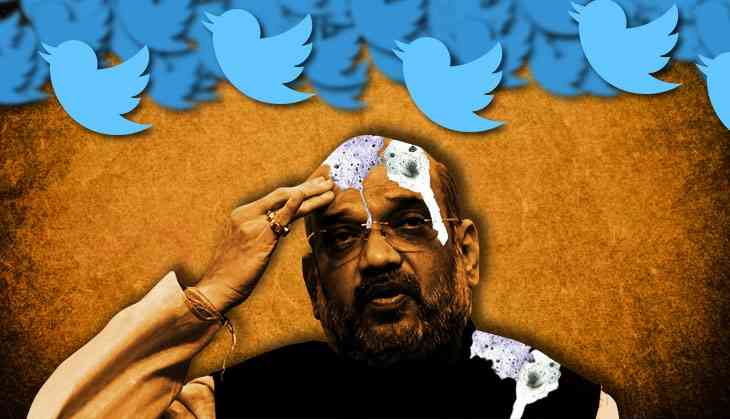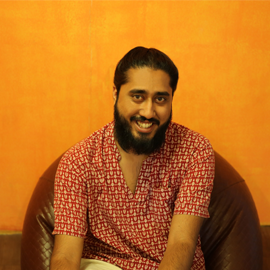The BJP is starting to lose the social media game and it's scaring Amit Shah

When BJP party president Amit Shah recently warned the youth to be wary of propaganda on social media, it was a lesson in irony. After all, Shah's party is probably the biggest beneficiary of the sort of propaganda he was warning against.
Powered by a large and well-oiled internet wing, the BJP took control of the social media space in the run up to the 2014 Lok Sabha elections and hasn't let up since. With an army of trolls to silence dissent, co-ordinated social media messaging to shape perception, and a WhatsApp network to maximise outreach, the party has mastered the art of online propaganda. It has used this mastery like a scythe; ruthlessly cutting opponents down, or, at the very least, drowning out their voices.
For Shah to now express worry about social media propaganda, therefore, is a good sign for those who oppose the BJP. It signals that the social media pendulum has begun to swing, and the same people who once profited from manipulating social media are now running scared from the very beast they so carefully created.
The Gujarat Model
The immediate source of Amit Shah's worry comes, fittingly enough, from Shah's home state of Gujarat. The state, a BJP bastion since 1995, now finds itself in a heated election battle with the Vijay Rupani-led government not guaranteed a return to power.
Patidar and Dalit agitations in recent years have hurt the BJP in Gujarat, with the recent floods only further hurting the state government's image. However, it is a social media campaign that could prove to be the coup de grace and this is what has Shah sweating.
The campaign – orchestrated by the Indian National Congress – is titled 'Vikas Gando Thayo Che', and was launched on 4 September. Parodying the BJP's claims of developing Gujarat, it has since gone viral with memes, photos and jokes helping the Congress seize control of the social media narrative in the state.
This is unfamiliar territory for Shah, whose party is not used to being on the receiving end of trolling. The worry now is that, if social media helped bring them to power, it could also bring about their downfall. And, more worryingly, the Vikas Gando Thayo Che campaign is just the latest in a recent series of social media losses for the BJP.
A dying wave
The BJP gained its current digital foothold because it realised the potential of social media well before its opponents. In the years since, however, other political parties have hired their own social media teams, with social media handles now the norm for politicians. Even so, the BJP's head start allowed it to enjoy something of a honeymoon period in its first two years. That is now a thing of the past.
As the Modi government's failures continue to rack up, those opposing the government's ideology and policies are using social media to skewer the government. Issues like lynchings, demonetisation, GST, health, and education have all been seized on by opposition parties to upstage the BJP's social media dominance.
This sort of loss of face for the BJP was previously unheard of, but as opposition parties ramp up their social media game, it is becoming increasingly more common. Even worse for the BJP is the fact that the sheer brute force of the BJP's social media machinery – a tool that previously helped quash contrarian views – has begun to backfire.
The vicious troll army that the BJP has thus far relied on is now actively harming the party's image. We saw this in the aftermath of Gauri Lankesh's murder, when BJP trolls went from attempting to distance the party from involvement in the matter to actively celebrating Lankesh's murder. Usually able to distance itself from trolls who speak in its name, the BJP's complicity was underscored by the fact that PM Modi himself followed some of these trolls.
A troll followed by PM @narendramodi reacts to death of #GauriLankesh
— Ankit Lal (@AnkitLal) September 6, 2017
If this #CultureOfViolence doesn't wake you up, nothing will. pic.twitter.com/tGibw4BRUC
The backlash on social media was massive, with the opposition leading a campaign to dent the PM's much-vaunted social media popularity. Soon, the trend 'Block Narendra Modi' was the top trend in the country, with the BJP and its social media cell squarely in the opposition's crosshairs. While Modi maintained a studied silence, the BJP Cabinet minister Ravi Shankar Prasad was forced to condemn trolls the PM followed, while the BJP IT Cell head also issued a less than convincing clarification.
The fact of the matter
While Amit Shah may now be warning BJP cadre about 'anti-BJP' propaganda, the BJP has benefited massively from propaganda in general. From information taken out of context to straight up fake news, the party has used every dirty trick in the book to gain a political advantage on social media. Now, the resurgence of fact-checking is putting a dampener on the BJP's fake news machinery.
The US elections in 2016 highlighted just how pervasive the trend of fake news had become. With social media platforms failing to curb the spread of fake news, and political parties using it as a vital political tool, fact-checking emerged as the only way to fight fake news. While this began in the US, it has had a knock-on effect, with fact-checking organisations springing up in India.
Organisations like Alt News, SMHoaxSlayer, BoomLive, and others have begun to expose fake news, a large chunk of which is decidedly right wing. In fact, Pratik Sinha, the founder of Alt News, told this reporter in an interview that the “bulk of fake news was from the right wing.”
As these organisations continue busting fake news, and fact-checking the BJP's claims, the party's social media presence is fast losing credibility.
With aggression no longer working, and credibility dissipating, is it any wonder that Amit Shah is a worried man?


